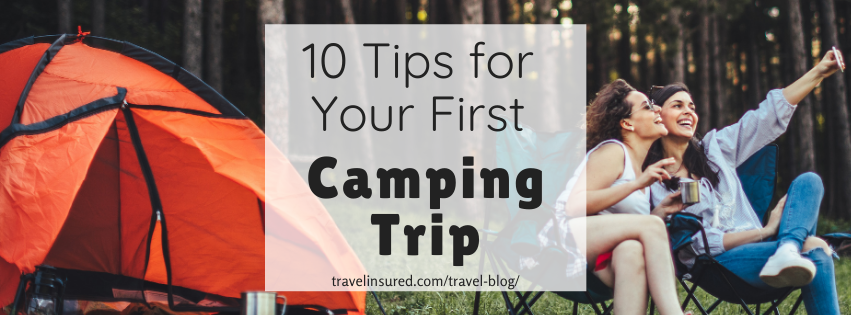by
Kellyn Uhelsky
| Jul 11, 2023

So, you've decided to embrace the great outdoors. There aren’t many experiences that connect you with nature as intimately as camping does. But as exhilarating as this adventure can be, one of the keys to a successful camping trip lies in proper planning and preparation. Here are some tips you might want to use if you’re new to camping and don’t know where to start.
1. Starting with the Basics and Gearing Up
Investing in quality gear could be a prerequisite for a memorable camping trip. Essential items might include things like a sturdy tent, a comfortable sleeping bag, and a reliable backpack. Try looking for gear made of durable materials that can withstand the elements. Also, consider the size and weight of the equipment. You may not want to carry unnecessary heavy baggage, especially on longer hikes.
2. Planning Your Meals
One of the most important items on your prep list is to plan your meals before leaving. Dry foods, canned goods, and ready-to-eat snacks are perfect for camping. Don't forget a portable stove if you plan to cook. Another hot tip is to prepare meals beforehand and freeze them. They can act as additional ice packs in your cooler and be ready to eat after thawing. Being properly fueled for your adventure can help you stay energized for longer.
3. Staying Hydrated: Packing Enough Water
Water - not just for drinking, but also for cooking and cleaning. While it's always good to have a water filtration system or purification tablets, consider packing more than enough water. Dehydration is probably not something you want to experience in the wilderness let alone at all.
4. Location, Location, Location: Knowing Your Campsite
Thorough research about various campsites can help you decide which one will be the best fit for you and your companions. Consider looking into the local wildlife, the weather forecast, and any potential hazards. If you're camping in a park, you might want to acquaint yourself with the rules and regulations so you can be better prepared for that particular site.
5. Essential Skills: Learning Basic Wilderness Techniques
Knowing basic survival techniques, such as starting a fire, reading a compass, or applying first aid, can greatly enhance your camping experience and safety. You don't need to be a survivalist, but being comfortable with these skills can be extremely beneficial.
6. Dressing Accordingly: Layering Your Clothing
Temperatures can vary greatly when you're camping, and one way to stay comfortable is to dress in layers. It’s easier to take off a layer if you’re too warm than to try and warm up if you’re too cold. Also, don’t forget a waterproof jacket and suitable footwear – you never know when mother nature might change her mind on the forecast you anticipated.
7. Respecting the Wildlife: Keeping a Safe Distance
Encounters with wildlife can be part of the allure of camping. However, try to remember that you're visiting their home. Keeping a safe distance, not feeding them, and ensuring you secure your food and trash so as not to attract any unwanted visitors can help you stay safe during your wilderness adventure. Also remember that the environment is a living creature as well. Doing your best to leave no trace behind you, when you pack up to go home, is one way you can keep it fresh, vibrant, and alive.
8. Being Prepared for Emergencies: Packing a First Aid Kit
A first aid kit is a great tool for any camping trip. You can purchase first aid kits both in stores and online, or you can even make your own! It might include items such as band-aids, antiseptics, tweezers, medical tape, pain relievers, and any personal medication. Remember to also pack a whistle and a headlamp or flashlight for emergencies…and some extra batteries.
9. Camping Entertainment: Fun Beyond the Fire
Bringing along items for entertainment, like a deck of cards, board games, books, or a guitar are some ways you can fill your time when you aren’t exploring the wilderness. These can turn a quiet night around the fire into a memorable bonding experience with your fellow campers.
10. Resting Well: Securing Your Sleeping Area
Ensuring your sleeping area is on flat ground and clear of rocks and sticks that could make your sleep uncomfortable. You might want to consider camping cots, a sleeping pad or air mattress to make your night a little more comfortable. Similar to layering your clothing, try layering your sleeping area. Temperatures tend to get cooler in the evenings, but if it happens to be a hot night you can quickly remove a blanket or two.
Camping offers an amazing opportunity to disconnect from the digital world and reconnect with nature and loved ones. With the right planning and preparation, any camping trip can be a fantastic adventure. Pack your travel protection every time you go away. To learn more about how travel protection can help you, talk to your travel advisor today or visit our website. Happy camping!
2985341